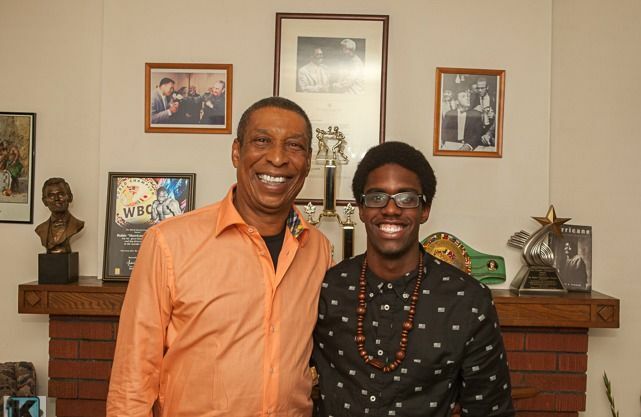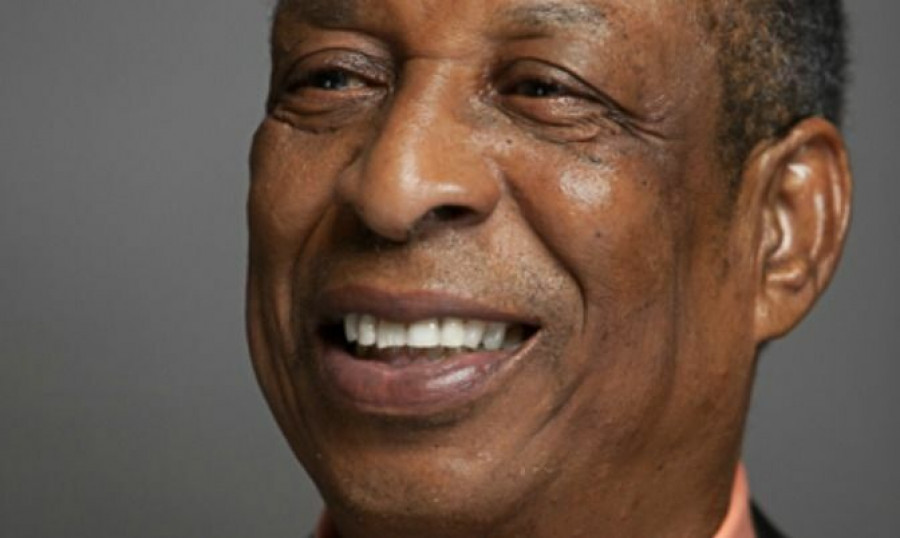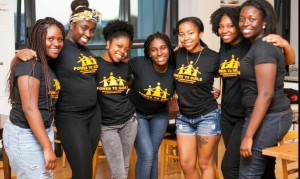Rubin was 28 years old and a professional boxer. The two had little in common except for a mutual friend who briefly introduced them. But the two would soon become much closer. About two weeks after John and Rubin met, the pair were arrested; accused of killing three white people. At the end of the trial both Rubin and John were found guilty and sentenced to life in prison. John and Rubin served more than 15 years of their life sentences before a judge decided the charges were racially motivated and ruled the convictions be set aside.
After his release, Rubin moved to Toronto and co-founded the Association in Defence of the Wrongly Convicted (AIDWYC) and later Innocence International. John later joined Rubin in his work for the wrongly accused. John also lived with and took care of Rubin when his prostate cancer became aggressive. Rubin passed away in April this year, and John has since assumed the leadership position of Innocence International. I had the chance to sit down with John and talk with him about his life and his friendship with Rubin.
When did you and Rubin really become friends?
When we were stopped that night, and taken to the scene of the crime. They took us downtown and started to ask us questions. Then they took us to the hospital to be confronted by the person who had been shot. (Two victims died on scene, while one died in hospital.) That's when we became friends. It was unspoken, but that's when we became friends.
When Rubin became really sick, you came to live with him here in Toronto, what made you decide to do that?
My dad had said that if you have five friends in a lifetime, you've had a lot. Well, I've had one, it's been Rubin Carter. When we were found guilty and had to go to prison, I didn't know anything about prison and he gave me a few words of wisdom. I've always had his back and he's always had my back, so it was a no-brainer now that he needed help. After always helping other people, it was unthinkable not to come up here. Especially when I found out that what he had was terminal.
John was with Rubin the morning he died. He describes the moments just before Rubin's death. “He was peaceful; holding out his arms, as if he were reaching to something in the sky before they folded across his chest and he died without a sound.” John says although it was a sad moment for him he was glad Rubin was no longer suffering, saying that just the week before he died, the pain was so severe it caused Rubin to scream in agony.
John says he functions without his friend, by trying to keep his emotions regulated by his intellect. However, John admits that while speaking in front of a large audience just three days after Rubin died, his emotions came crashing in on him and he began to cry uncontrollably. It was the first time he had talked about Rubin's death.
How do you feel about the death penalty? Do you think it's appropriate for certain crimes?
I don’t think it's appropriate because death is the ultimate punishment. And in order to give the death sentence you'd have to be absolutely 1000% sure it's the person who committed the crime. It's too easy to convict someone and kill another person. Even being in jail for life is a death sentence. Life in prison is worse than the death sentence. If you're sentenced to death, be it what it may, you have a date and you know when you're going to die. But with a life sentence, you can see the outside as long as you live but you can never go out. It's like being confined to your home; you can look out the window and see everybody going about their lives but you can't go out there and live yours. You're going to be stuck there doing the exact same thing, day in day out until you die. That's a death sentence.
You once said prison "will rob you emotionally, physically and spiritually - if you let it" what did you do to prevent that from happening?
There's a theory in prison: You do the time, don't let the time do you. You have to take advantage of everything that's possibly there for you to have or acquire, regardless of whether you're going to get out alive or not, in order to keep yourself motivated and keep going. Because all of us at some time hit a brick wall where we get to the "I can't do it anymore" or "I've had enough, I'm tired of this" stage. I served 5478 days, 180 months, 780 weeks; that's 15 years, including the leap years. And that's it. Once you lose your freedom, that's the end of your life. No matter how long you're in for, because time waits for no man.
When we left in 1966, things weren't the same when I got out in 1981. Everything had changed. Every genre of society had changed, so you're behind time. The day you get arrested and charged you start living in the past. The whole time you're doing your sentence you're living in the past. Everything that you recall, all your memories are from the past although you're getting older and going into the future. No matter how many newspaper articles you've seen, no matter how many documentaries you've watched, people you talk to coming in, it's all in the past because it's third person, it's not happening right now. The future is now; right now. This is the future not tomorrow. Tomorrow isn't promised to anyone and we all take that for granted. We take it for granted that we're going to get up the next day. The most difficult task every human being has to do every day is lay down at night and wake up in the morning. If I can do that, if I can wake up, everything else is easy. But when you lose your freedom, you lose everything.
What's it like reintroducing yourself to society after you get out of jail? What is it like to go through that period of adjustment?
Well it's like being born again. You come out with fears. You dare to dream, you hope and you pray for that day and when it arrives you're at a loss. I was surprised by how much technology had advanced when I got out. When you get out you remember the memories you've had, the places you've been but those things are gone. You're like a dinosaur walking into the future so you're timid and hesitant. Notwithstanding the fact that now you have this ball and chain that you're a convicted felon, and every job application asks 'have you ever been charged of a criminal offence'. Now the dilemma is, do you lie and say ‘no’ only for them to find out later and then fire you because you lied or do you be upfront and not get the job anyway? You're hesitant to get out there, but you have to get out there because you're pressured if you're on parole and because you have to survive. You can live off cigarettes in prison, you can barter and trade; you can't do that out here. You want to do a million things but you can't do one because like an animal you have to become re-acclimated into your environment. You have to go exploring where you were born because things change. In prison the only thing that changes is the date and the faces. On the outside everything changes. But I will always be John Artis, connected to Rubin Carter, who was on trial, twice, convicted and spent 15 years in prison.
What would you say it's like to not be the same John Artis in people's eyes as you were before you went to jail?
I don't care, it’s irrelevant. It's like my grand father used to say 'what you eat doesn't make me fat'. When you start taking care of me, then it'll start to matter what you think, until said time I don't care. I don't have time to worry about those things, I'm trying to live my life. I'm not bitter, I'm not angry because anger and hatred consume the vessel that contains it and that would mean that prison had won, that I had become part of it. But I never wanted it to become a part of me. If you don't like me, I don't care, I'm not going to lose any sleep over it. I'm going to live because as the old folks say, life is short. Your life is the dash on your headstone, Rubin's was 1937 dash 2014. What you make of that dash determines whether or not you will leave here happy and content. So enjoy your life ans do the things that bring you pleasure and no pain or drama. The beauty of the world is in the little things.
Today John continues to carry out Rubin's legacy through his work with Innocence International. Since Rubin's death, John has remained at the Toronto house he and Rubin shared. But John has been travelling all over North America, speaking at different schools, events informing the public (including governments officials, activists and journalists) of the dangers of wrongful convictions. John recalls when he and Rubin were in prison it was extremely difficult to get someone to listen to their case; it took nearly 10 years to find someone willing to aid them. With Innocence International he hopes to provide legal knowledge, advice and support to those who have been wrongly convicted, and educate the public to avoid wrongful convictions from happening in the future.
Marcus Medford is 20 years old, a poet and is studying journalism at the university of Toronto. He is pictured below alongside John Artis.


 By
By 





